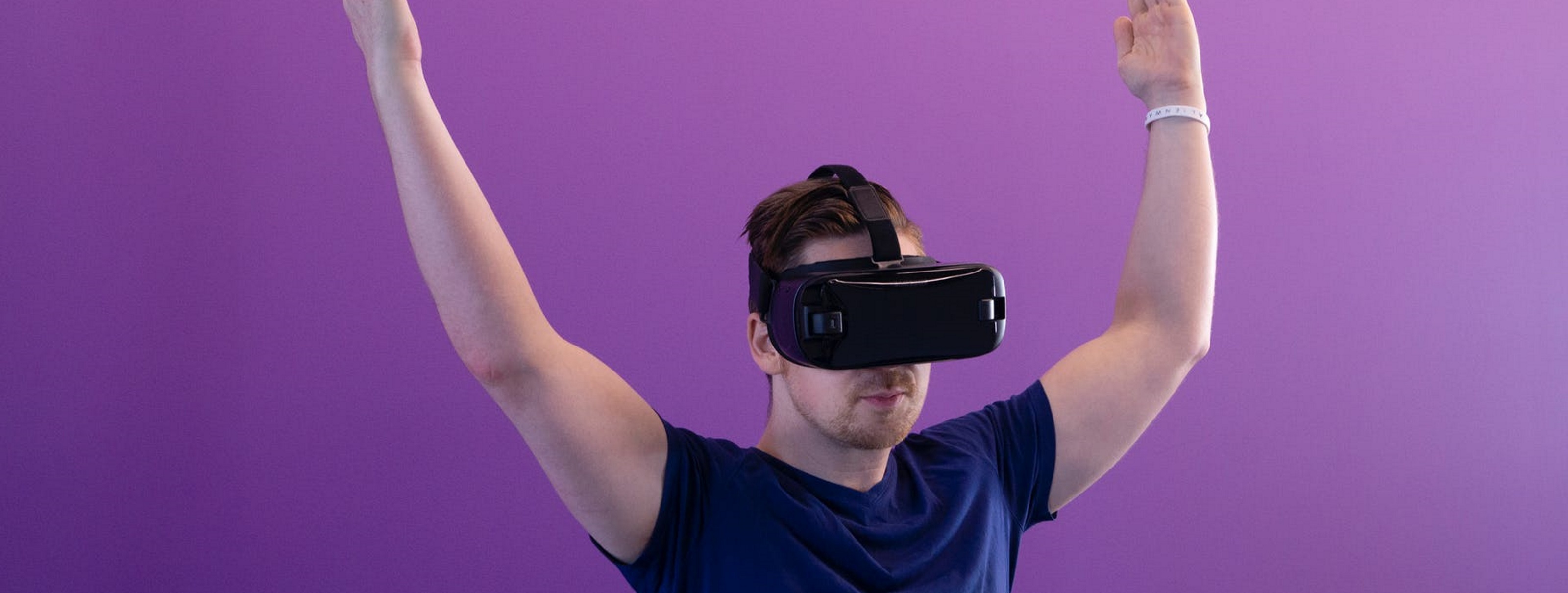
VR@Manchester Club
Innovation Community Lead: Dr Paul Warren
The VR@Manchester innovation club aim to meet monthly to allow staff and researchers to meet and network with people who have similar technology / research interests relating to Virtual, Augmented and Extended Reality.
The purpose of VR@Manchester club activity is to allow UoM researchers to:
- Present their research and discuss sticking points that the community may be able to help them with
- Find new collaboration partners from across the University
- Ask questions within the community so that members can share experience/ideas to save time
- Share ideas on funding calls that are relevant to the community
- Share equipment (if free) and resources
- Discuss technology/methodology advances and provide advice on what to/not to buy
- Advertise talks that may be of interest to the community & widen participation across campus.
For any queries or further information, please contact matthew.thomas@manchester.ac.uk.
If you are interested in this community, you may also be interested in Digital Futures, the University’s interdisciplinary network operating across the whole range of the University’s digital research. Digital Futures brings together over 1400 researchers from different disciplines across all three of the University’s faculties into multidisciplinary communities to tackle important research problems, build critical mass in new and emerging research areas and to work with external stakeholders to support Greater Manchester’s ambitions as a leading digital city.
This club incorporates activity from the previous Visualisation & Imaging Community
Sign-Up
Recent and Upcoming Events
Upcoming Seminars:
Guest Speaker: Dave Gallagher, chartered psychologist at CognitvExplorer
Date/Time: Friday 30th April, 12:00
Title: Cognition in the ‘wild’: s(t)imulating an adventure-mindset
Abstract: Virtual Reality is of significant interest within fundamental cognitive science research probing the neurophysiological mechanisms underpinning optimal performance under environmental stress. VR can allow for systematic manipulation of conditions that would be difficult to control in real situations. It is also of interest with respect to how we can prepare individuals for exposure to real-world challenges by simulating stress and challenge (such as height exposure, or skydiving).
This talk will spotlight Dave’s work with adventure training organisations including the charity MAST which takes youngsters out to sea on tall ships. Within this programme he aims to explore how VR can help train participants in the challenge and skills of sailing, as well as other applications of the technology to educate about the maritime environment and maritime heritage. Within this sector, mental health is of major focus, and to this end VR might also be of value in the coaching and therapeutic arenas.
Taking an ‘Adventure Psychology’ approach, VR is an integral tool for: manipulating context to measure fundamental responses to stress and challenge; increasing engagement to the context that will be experienced ‘for real’ in order to foster skills appropriate to tasks encountered; and even to potentially help individuals overcome mental health challenges by introducing them to adventure-based scenarios.
About the Speaker: Dave is a cognitive scientist, Chartered Psychologist interested in the intersection between brain function (Cognitv) and adventure experiences (Explorer) – namely how adventurous environments and pursuits impact on mental fitness and capacity to perform to one’s best. He is also an adventurer, with over 20 years of experience applying experimental psychology methods to understand how human behaviour is dependent on environmental context.
This includes working in the consumer goods sector (as a consumer psychologist), and with multiple world class academic institutions on a range of applied real world questions. He currently work with extreme sports athletes to understand how certain individuals perform ‘at the edge’, and to apply these insights to help people achieve optimal performance in daily life.
Guest Speaker: Professor Stefania Serafin, Department of Architecture, Design and Media technology, Aalborg University, Copenhagen
Date/Time: Wednesday 26th May
